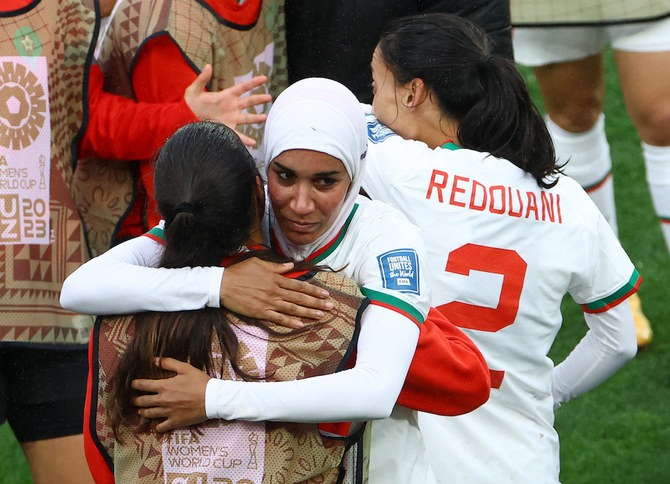In a groundbreaking moment for women’s football, Moroccan defender Nouhaila Benzina created history as the first player to compete in a hijab at a senior-level global tournament. Stepping onto the field against South Korea in Morocco’s second Women’s World Cup match, Benzina’s inspiring feat marks a significant step towards greater diversity and inclusion in the sport.This historic moment was made possible after FIFA overturned a ban on religious head coverings in its sanctioned games in 2014. Previously, the ban was in place for purported “health and safety reasons.” However, the advocacy of activists, athletes, and soccer officials, along with support from governments, led to the ban’s reversal, paving the way for players like Benzina to proudly wear their hijabs while representing their nations on the global stage.The significance of this milestone extends beyond the football field. Assmaah Helal, co-founder of the Muslim Women in Sports Network, emphasizes that Benzina’s achievement will inspire not only players but also decision-makers, coaches, and other sports. This breakthrough represents a positive shift in the perception of Muslim women’s participation in sports and challenges stereotypes and barriers that have limited their representation at the highest levels of competition.Benzina, who plays for the Association’s Sports of Forces Armed Royal, an eight-time defending champion in Morocco’s top women’s league, adds her name to the list of trailblazers who have shattered glass ceilings and paved the way for future generations of athletes. Her presence on the field signifies progress and empowers Muslim girls and women who aspire to pursue careers in sports.The Atlas Lionesses, Morocco’s women’s national football team, showcased their potential and talent in a spirited match against South Korea. Although Benzina did not feature in Morocco’s opening 6-0 loss to Germany, her inclusion in the starting lineup against South Korea brought a new dimension to the team’s play. The Atlas Lionesses displayed a sense of freedom and determination, scoring an early goal and securing a hard-fought 1-0 victory in the Group H game in Adelaide. Benzina’s role in the defensive line was instrumental, and her commitment and passion for the sport were evident throughout the match.As the first Arab or North African nation to qualify for the Women’s World Cup, Morocco carries the responsibility of representing the region on the global stage. Captain Ghizlane Chebbak expressed her team’s pride in being part of this prestigious tournament and their determination to showcase the achievements and progress of Moroccan women’s football.Nouhaila Benzina’s groundbreaking participation in the Women’s World Cup signifies a powerful step towards greater inclusivity and representation in football. Her journey will undoubtedly inspire and encourage women and girls, not only in Morocco but around the world, to pursue their dreams and challenge traditional norms. As the sport continues to break barriers and embrace diversity, Benzina’s remarkable achievement will leave a lasting impact on the future of women’s football.
History Made: Moroccan Defender Nouhaila Benzina Competes in Hijab at Women’s World Cup












